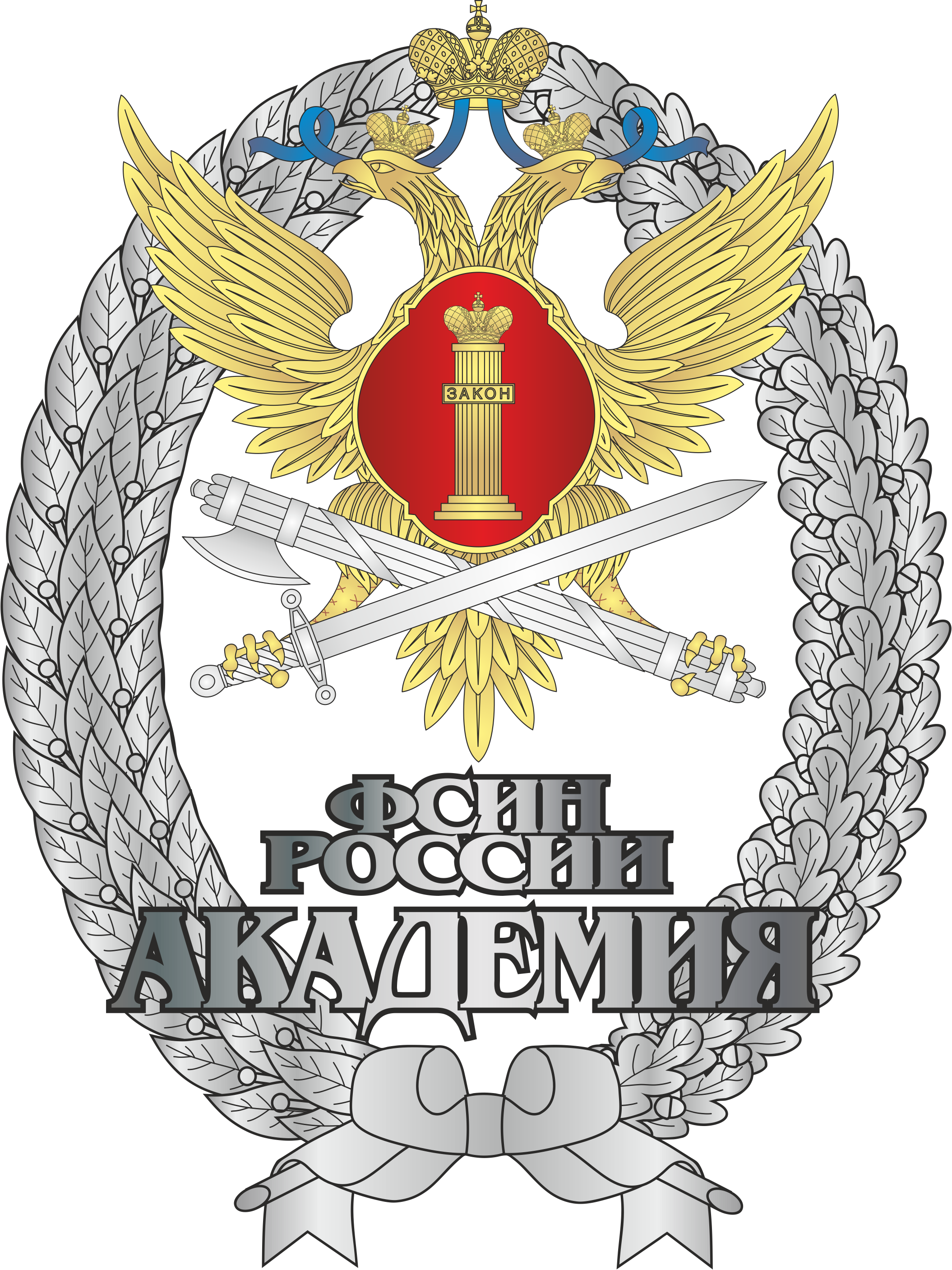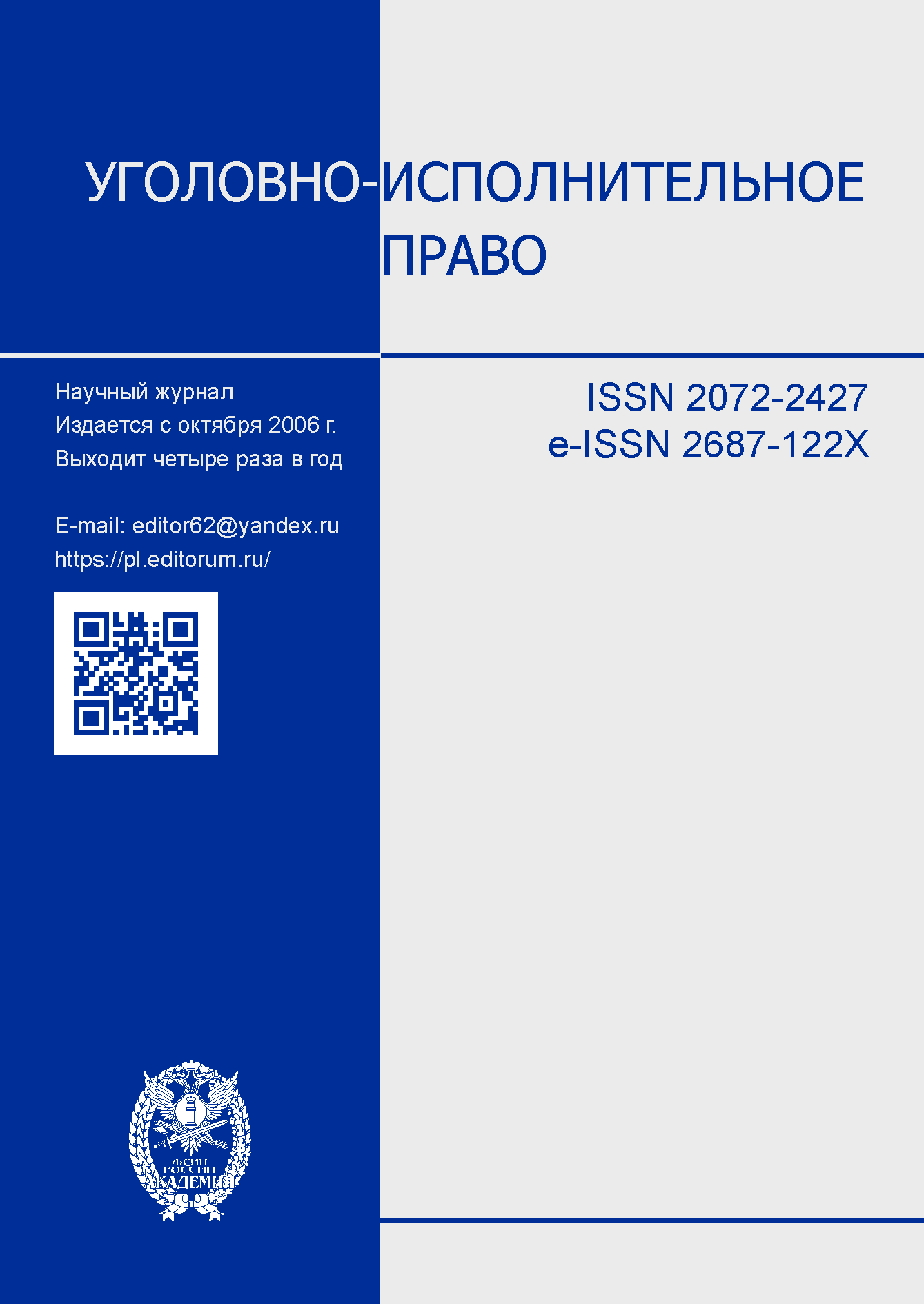Russian Federation
UDC 343.825
The article identifies and analyzes the problems of educational work with convicts in the context of their re-socialization. The author comes to the conclusion that the current penal enforcement legislation does not fully reflect the role and content of educational work with convicts. It is proposed to provide an approximate list of educational measures, to identify the subjects responsible for conducting educational work, as well as the forms of their interaction with convicts in order to correct and re-socialize them. In order to effectively organize educational work, it is necessary to achieve an approximately equal ratio of the number of employees and convicts in a correctional institution. It is recommended to develop and test the technology of organizing the work of the school for the preparation of convicts for release with a focus on taking into account in its work the resources of both state structures and non-profit organizations, as well as the convicts themselves and their immediate environment.
educational work with convicts, penal enforcement legislation, correctional institutions, school of preparation of convicts for release, resocialization
1. Karabanova, E. N. & Chobanyan, A. G. 2023, ‘Prosecutorial activity for the prevention of offenses in institutions of the penal enforcement system’, Actual problems of Russian law, vol. 18, iss. 3(148), pp. 146-156.
2. Klenova, T. V. & Adoevskaya, O. A. 2019, ‘The problem of legal certainty of the policy of re- socialization of persons who have served a criminal sentence and tasks released from it’, Bulletin of the Nizhny Novgorod Academy of the Ministry of Internal Affairs of Russia, iss. 1(45), pp. 124-129.
3. Useev, R. Z. & Nekrasov, A. P. 2020, ‘Detachment of convicts to imprisonment: problems of legislation, organization and law enforcement’, Bulletin of the Samara Law Institute, iss. 4(40), pp. 81-86.
4. Pakanich, S. I. 2015, The right of juvenile convicts to personal safety and its provision in the execution of a sentence of imprisonment: PhD thesis (Law), Vologda.
5. Teplyashin, P. V. 2018, European penitentiary systems: monograph, Yurlitinform, Moscow.
6. Encyclopedia of Social Work 1994, translated from English, in 3 vols, vol. 3, Center for Universal Values, Moscow.
7. Gernet, M. N. 1960, History of the Tsar’s prison, in 5 vols, vol. 1, Moscow.
8. Antonyan, Yu. M., Kudryavtsev, V. N. & Eminov, V. E. 2004, Criminal Identity, Law Center Press, St. Petersburg.
9. Dolgova, A. I. (ed.) 2018, Criminal identity and its criminological study, Russian Criminological Association, Moscow.
10. Matskevich, I. M. 2005, Portraits of famous criminals, Polygraphopt, Moscow.
11. Natashev, A. E. 1971, Principles of Soviet correctional labor Law, Research Institute of the Ministry of Internal Affairs of the USSR, Moscow.
12. Speransky, I. A. 1969, The content and implementation of the principles of correctional labor law: textbook, NIiRIO VSS of the Ministry of Internal Affairs of the USSR, Volgograd.
13. Davies, P. & Francis, P. 2018, Doing Criminological Research, SAGE Publishing, London.
14. Klenova, T. V. 2019, Resocialization and real inclusion of convicts in civil society: monograph, Yurlitinform, Moscow.
15. Skiba, A. P. & Maloletkina, N. S. 2023, ‘The Law “On Probation in the Russian Federation” as a prerequisite for further development of penal enforcement law’, Bulletin of the Kuzbass Institute, iss. 1(54), pp. 80-90.
16. Skiba, A. P. & Maloletkina, N. S. 2022, ‘Draft Law “On Probation in the Russian Federation”: some aspects of discussion in 2021-2022’, Penal law, vol. 17(1-4), iss. 2, pp. 176-194.











